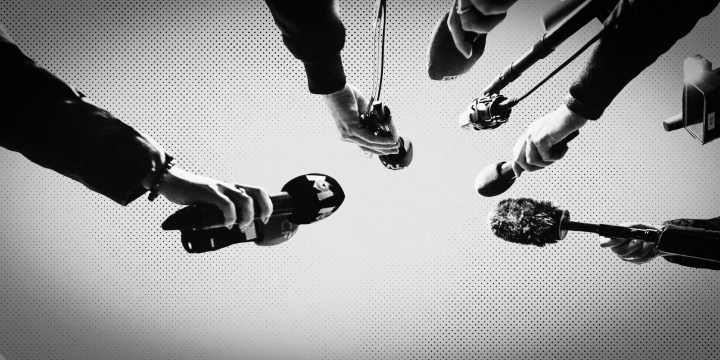SILENCING DISSENT OP-ED
New Film and Publication Board regulations stifle free speech and must be withdrawn immediately

We need to fight disinformation and the corrosive effect it has on our society. But we need to do so skilfully and carefully or we will also silence legitimate voices.
The Film and Publication Board (FPB) published regulations last week which are ostensibly aimed at tackling mis- and disinformation during the upcoming elections.
Media organisations including Media Monitoring Africa, the Campaign for Free Expression, the South African National Editors’ Forum, the SOS Support Public Broadcasting Coalition and the Press Council of South Africa have warned that this is a crude, misdirected and potentially dangerous attempt to tackle the problem. They have all called for the immediate withdrawal of the new regulations.
The FPB regulations represent a masterclass in how to squeeze a litany of unconstitutional elements into one set of regulations. They contain a multitude of problems. To begin with, there has been a failure to follow due process. To design and pass regulations and have them come into force with no public participation at all is a clear violation of the Promotion of Administrative Justice Act, but it is all the more egregious when it seeks to deal with new areas not covered anywhere else in the FPB mandate and which have no basis in existing legislation.
The very legitimacy of the FPB’s actions is in question. The Act under which it operates, the Films and Publications Act, offers no clear mandate for the FPB to regulate online content in this way. Some will recall previous efforts by the FPB to try to regulate the internet in 2015. It seems lessons have not been learned.
The next fatal flaw with the regulations is that they introduce entirely new definitions for “misinformation” and “disinformation” which are worryingly vague and out of keeping with emerging global standards. These loose definitions may create new categories of prohibited content that can easily be abused to silence legitimate voices and would have a chilling effect on free speech.
SA’s history of censorship is one reason why there is a very high threshold of freedom of expression in the Constitution.
Vague restrictions on online content can easily be abused to silence dissenting voices and curtail legitimate criticism. We have seen this in neighbouring countries where such legislation has been used more often to silence government critics than to counter disinformation. This is a risk underscored by the United Nations special rapporteur on freedom of expression, who has warned against using the fight against disinformation as a pretext for censorship.
The need to combat misinformation and disinformation is clear. We are not saying that there shouldn’t be regulations dealing with this. What we are saying is that if we allow free speech to be regulated by a government department — which is what the FPB is — rather than an independent body, and if we allow a definition to be overly broad and vague, it will chill free speech and undermine our democracy.
As the regulations stand, if we were to suggest, for example, that the leadership of the ANC only eats green, black and gold food, knowing this is false, we could be found guilty of disinformation and sentenced to a R150,000 fine and/or a two-year prison sentence.
The FPB’s attempt to extend its reach is concerning. The regulations place a significant burden on internet service providers (ISPs) who would be responsible for policing content and potentially face liability for failing to prevent the spread of “misinformation”.
Entities like Vodacom, MTN, Telkom, Cell C, Mweb and Afrihost would be required to invade our right to privacy by analysing our content. This raises questions about the legality of such rules and the potential impact on net neutrality.
We have set out a clear demand: the complete withdrawal of the regulations by 4 April. Failure to do so will result in legal action.
This is a fight worth watching. Open and robust public discourse is fundamental to any democracy, and these regulations threaten to stifle just that. It is crucial that the FPB urgently withdraw them and engage in a more inclusive and transparent process to address the complex issue of mis- and disinformation.
The democratic will of the people should not be undermined by acts of misinformation or disinformation, but neither should it be undermined by overreaching regulations that stifle free speech. The balance is delicate, but it is a balance that must be struck to ensure the continued health of our democracy. DM




















DM, you guys should do a piece on how many newspapers, online/paperback, and tv news stations, SABC, EuroTV etc, are payed off by the government to spread only certain stories and not the whole truth. I have always said that news outlets is where we get information from that is not available to us who are not on social media, or any other form of information gathering. I doubt the stories much as they seem to reflect a certain way of thinking and not what’s really going on. I never read a story in any newspaper telling us of how tant Stienie put her new cookies out at a stop street and caused 47% of the neighborhood not to go to work that day. Not sure if they were laced, but yea. Most stories, headlines or not, in any form of newspaper, reflect news outlets reporting about government and there cronies getting up to no good. Are there no good things ever happening in this country? BTW did you know that Nora en Pure, who is a local female DJ, origins from Pretoria, was nominated 53rd best female dj globally? DJ Black Coffee, who is a big name ranked 25th. hmmm makes you wonder what mindset do we want the people to be in.
African cultures fundamentally misunderstand the concept of free speech, the “hate” speech laws in SA are a perfect example of this. It seems that due to truly fragile African egos, their belief that being a “big man” is more important than being a “good man” and their belief that show is more important than substance, they would rather suppress criticism or contempt by claiming that such speech is hurtful, os opposed to considering whether they are true or not. No doubt deeply entrenched African victimhood also contributes to this and to the rampant delusion of superiority in the face of overwhelming evidence to the contrary.